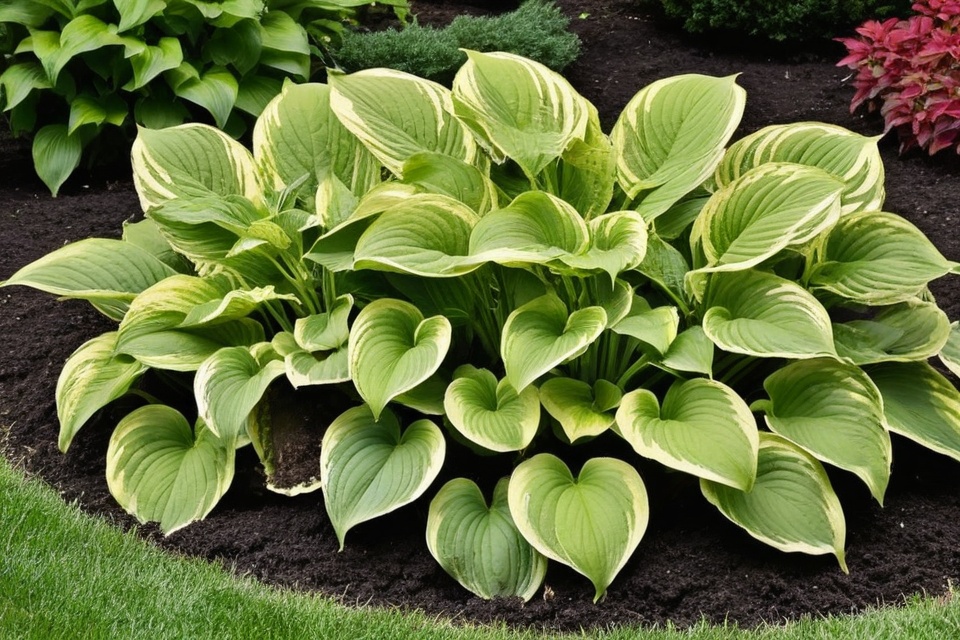Love hostas but not sure how to grow them?
It’s easier than you think!
With just five simple steps, you can have hostas that look amazing.
Ready to make your garden stunning?
Let’s get started!
Pick the Right Spot

First things first, you need to choose a perfect spot for your hostas. These leafy beauties thrive in shady areas.
If you have a part of your garden that doesn’t get direct sunlight all day, that’s the ideal place. Make sure the soil drains well because hostas don’t like to sit in water.
If your garden has heavy clay soil, consider amending it with compost to improve drainage.
Prepare the Soil
Once you’ve got the perfect spot, the next step is to prepare the soil. Dig down about 12 inches and mix in some organic matter like compost or aged manure.
This will provide the nutrients hostas need to flourish. Also, check the pH level of the soil.
Hostas prefer slightly acidic to neutral soil (pH 6.5 to 7.5). Adjust accordingly with lime or sulfur if needed.
Plant With Care
Now it’s time to plant your hostas. Make a hole that’s twice the width of the root ball but just as deep.
Place the hosta in the center of the hole and fill it back with soil. Firm the soil gently around the plant and water it well.
Ensure that the crown of the plant is level with the soil surface. This will help the roots establish more easily.
Water Wisely
Watering is key to growing stunning hostas. They like their soil to be consistently moist but not waterlogged.
Aim for about 1 inch of water per week. During hot, dry spells, you might need to water more frequently.
To keep the moisture in the soil, add a layer of mulch around the plants. This will also help to keep weeds at bay and maintain soil temperature.
Feed and Protect
Hostas are relatively low-maintenance, but they appreciate some feeding. Apply a balanced, slow-release fertilizer in the spring.
This gives them a good start for the growing season. Additionally, watch out for slugs and snails—they love hosta leaves.
You can use organic slug pellets or set beer traps to keep these pests at bay. Check your hostas regularly and deal with any pests promptly.

